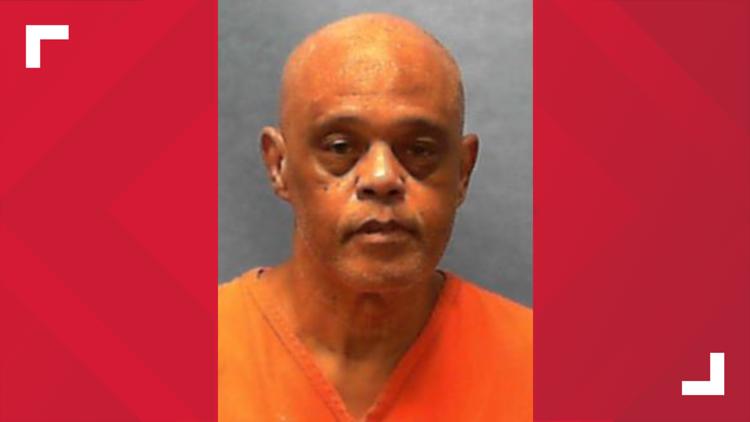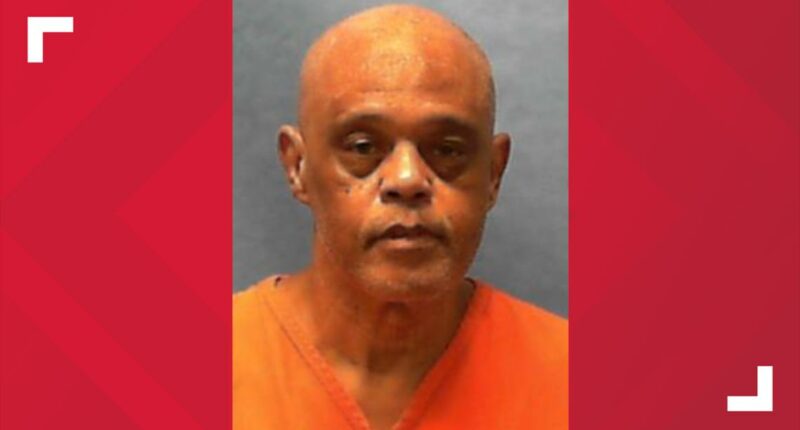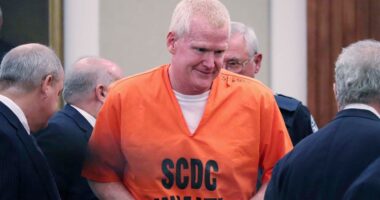Share this @internewscast.com

Kayle Bates, 67, was declared dead at 6:17 p.m. after receiving a three-drug injection at Florida State Prison near Starke, as authorized by Gov. DeSantis.
STARKE, Fla. — A man convicted of kidnapping a woman from a Florida Panhandle insurance office and murdering her was executed by lethal injection Tuesday evening, marking the 10th execution in the state this year.
Kayle Bates, 67, was pronounced dead at 6:17 p.m. following a three-drug injection at Florida State Prison near Starke under a death warrant signed by Republican Gov. Ron DeSantis. This execution set a record for the number of executions in Florida in a single year, with two more scheduled in the upcoming month.
Bates was found guilty of first-degree murder, kidnapping, armed robbery, and attempted sexual battery for the June 14, 1982, murder of Janet White in Bay County, located in the Florida Panhandle. Janet White’s husband, Randy White, attended the execution as a witness.
At the scheduled 6 p.m. time for the execution, the curtain to the death chamber rose promptly. Bates was already secured to a gurney with his left arm outstretched and the IV line for the drugs ready. When asked if he wanted to make a final statement, Bates declined.
The execution began at 6:01 p.m. Bates’s breathing quickened shortly after the drugs started to flow, ceasing roughly a minute later. At 6:05 p.m., the warden attempted to rouse Bates by touching his face, shaking his shoulders, and shouting his name, but received no response. He was declared dead several minutes thereafter.
Since the U.S. Supreme Court restored the death penalty in 1976, the highest previous annual total of Florida executions was eight in 2014. Florida has executed more people than any other state this year, while Texas and South Carolina are tied for second place with four each.
With Tuesday’s execution, a total of 29 men have died by court-ordered execution so far this year in the U.S., and at least nine other people were scheduled to be put to death in seven states during the remainder of 2025.
According to court documents, Bates abducted White from the insurance office where she worked, took her into some woods behind the building, attempted to rape her, fatally stabbed her and tore a diamond ring from one of her fingers.
Attorneys for Bates had filed appeals with the Florida Supreme Court and the U.S. Supreme Court, as well as a federal lawsuit claiming DeSantis’ process for signing death warrants was discriminatory. The lawsuit was recently dismissed by a judge who found problems with the lawsuit’s statistical analysis.
The Florida Supreme Court recently denied Bates’ pending claims, including arguments that evidence of organic brain damage had been inadequately considered during his second penalty phase. The court ruled Bates has had three decades to raise these claims. And the U.S. Supreme Court rejected Bates’ last appeal Tuesday.
Two more executions are planned in Florida in coming weeks.
Curtis Windom, 59, is scheduled to become the 11th person executed in Florida on Aug. 28. He was convicted of killing three people in the Orlando area in 1992. David Pittman, 63, would be the 12th person executed in Florida if his death sentence is carried out as scheduled Sept. 17. He was found guilty of fatally stabbing his estranged wife’s sister and parents at their Polk County home before setting it on fire in 1990.
Florida executions are carried out using a three-drug lethal injection: a sedative, a paralytic and a drug that stops the heart, according to the state Department of Corrections.
Copyright 2025 Associated Press. All rights reserved. This material may not be published, broadcast, rewritten, or redistributed.

















